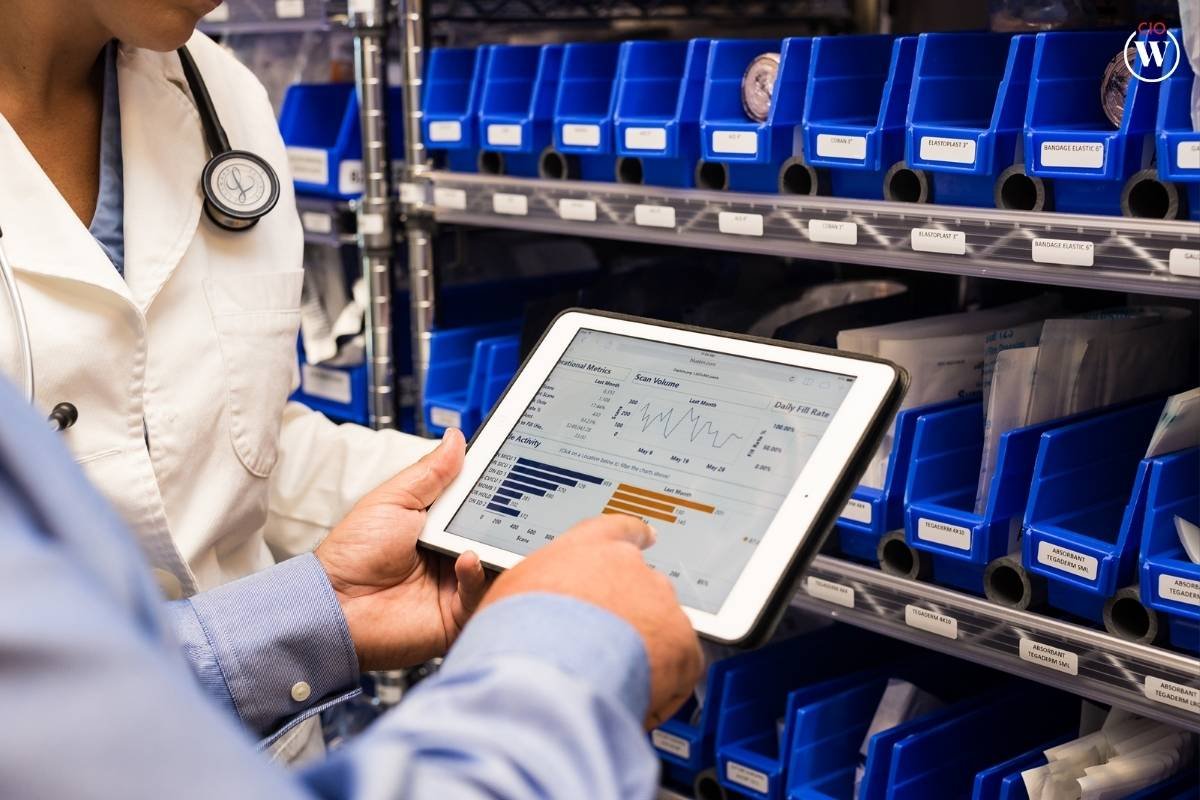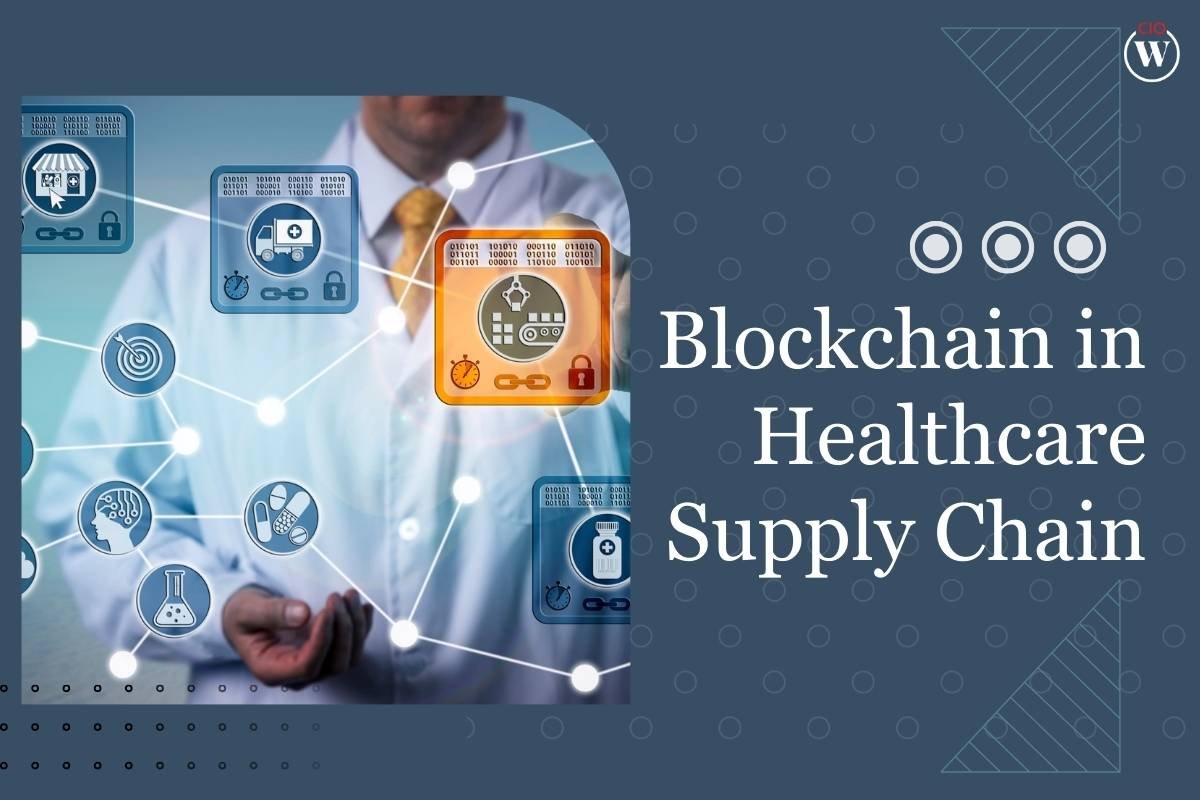Source – Pharma Trends
Of late, the healthcare industry has been undergoing a transformative shift. As with other sectors, technology is playing a pivotal role in enhancing efficiency and transparency in the industry. Talking about technology, blockchain certainly stands as one of the revolutionary technologies making waves in healthcare. This decentralized and secure technology has found its application in various sectors. In this article, we will explore how blockchain is reshaping the healthcare supply chain, bringing transparency, security, and efficiency to a critical aspect of the industry.
Understanding the Healthcare Supply Chain
Before delving into the impact of blockchain, it’s crucial to comprehend the complexities of the healthcare supply chain. The healthcare supply chain encompasses the production, distribution, and delivery of pharmaceuticals, medical devices, and other essential healthcare products. It involves numerous stakeholders, including manufacturers, distributors, healthcare providers, and regulatory bodies. The interconnected nature of this supply chain makes it susceptible to challenges such as counterfeiting, fraud, and inefficiencies.
Blockchain’s Role in Healthcare Supply Chain:
Blockchain technology operates on a decentralized ledger system, providing a transparent and immutable record of transactions. In the healthcare supply chain, this translates to a comprehensive and unalterable history of the journey a product takes from its origin to the end user. The decentralized nature of blockchain ensures that all stakeholders have access to the same, real-time information, reducing the risk of discrepancies and enhancing overall visibility.
1. Enhanced Traceability:
Blockchain’s impact on healthcare supply chain traceability is profound. Each transaction related to the production, transportation, and distribution of healthcare products is recorded on the blockchain. This creates an unbroken chain of custody, allowing stakeholders to trace the entire journey of a product. With the healthcare supply chain keyword in mind, this heightened traceability significantly reduces the chances of counterfeit drugs entering the market. Moreover, it facilitates swift identification and recall of faulty or contaminated products, minimizing risks to patient safety.
2. Improved Security:

Securing sensitive information in the healthcare supply chain is paramount. Blockchain’s cryptographic techniques ensure that data stored on the ledger is secure and tamper-resistant. Every transaction is encrypted and linked to the previous one, creating a continuous and secure chain. In the context of the healthcare supply chain, this level of security is crucial for protecting patient data, maintaining the integrity of regulatory records, and preventing unauthorized access to sensitive information.
3. Smart Contracts for Efficiency:
Smart contracts are self-executing contracts with the terms of the agreement directly written into code. In the healthcare supply chain, smart contracts automate various processes, streamlining operations and reducing the need for intermediaries. For example, when a product reaches a certain checkpoint, the smart contract can automatically trigger the next phase of the supply chain, such as payment or product delivery. This not only accelerates the entire process but also minimizes errors and disputes.
4. Real-Time Visibility:

The keyword “healthcare supply chain” gains prominence when discussing the real-time visibility that blockchain provides. Stakeholders, including manufacturers, distributors, and healthcare providers, can access a single version of the truth in real-time. This ensures that everyone is on the same page regarding inventory levels, shipment statuses, and other critical information. Real-time visibility is particularly advantageous in scenarios where timely decisions can have a significant impact, such as during a public health crisis or a sudden surge in demand for specific medical supplies.
5. Streamlined Regulatory Compliance:
The healthcare industry is heavily regulated, with stringent compliance requirements to ensure patient safety and product quality. Blockchain facilitates adherence to these regulations by providing an immutable and transparent record of all relevant activities. This not only simplifies the auditing process but also helps in demonstrating compliance to regulatory bodies. The keyword “healthcare supply chain” echoes throughout this aspect, emphasizing the importance of a streamlined and compliant supply chain in the healthcare sector.
6. Reduced Counterfeiting:
Counterfeit drugs pose a significant threat to public health, and combating this issue is a top priority for the healthcare industry. Blockchain’s ability to create an unalterable record of each transaction makes it exceptionally challenging for counterfeiters to introduce fake products into the supply chain unnoticed. By ensuring the authenticity of pharmaceuticals and medical devices, blockchain helps build trust among patients and healthcare providers, ultimately enhancing the credibility of the entire healthcare supply chain.
7. Cost Savings:

Efficiency gains, reduced fraud, and streamlined processes all contribute to cost savings in the healthcare supply chain. The keyword “healthcare supply chain” resonates throughout discussions on cost savings, as stakeholders seek ways to optimize their operations and allocate resources more effectively. By minimizing manual interventions, eliminating inefficiencies, and preventing costly errors, blockchain proves to be a cost-effective solution for the healthcare supply chain.
Challenges and Considerations:
While the benefits of integrating blockchain into the healthcare supply chain are evident, challenges and considerations must be acknowledged. The implementation of this technology requires collaboration among stakeholders, standardization of data formats, and addressing interoperability issues. Additionally, concerns related to privacy, data ownership, and the environmental impact of blockchain’s energy consumption need careful consideration.
Conclusion
Blockchain technology is entering a new era of transparency and efficiency in the healthcare supply chain. The healthcare supply chain permeates every aspect of this transformation, emphasizing the critical role this sector plays in ensuring the well-being of individuals worldwide. As blockchain continues to evolve and gain wider acceptance, the healthcare industry stands to benefit from a more secure, traceable, and streamlined supply chain, ultimately leading to improved patient outcomes and a more resilient healthcare ecosystem.









